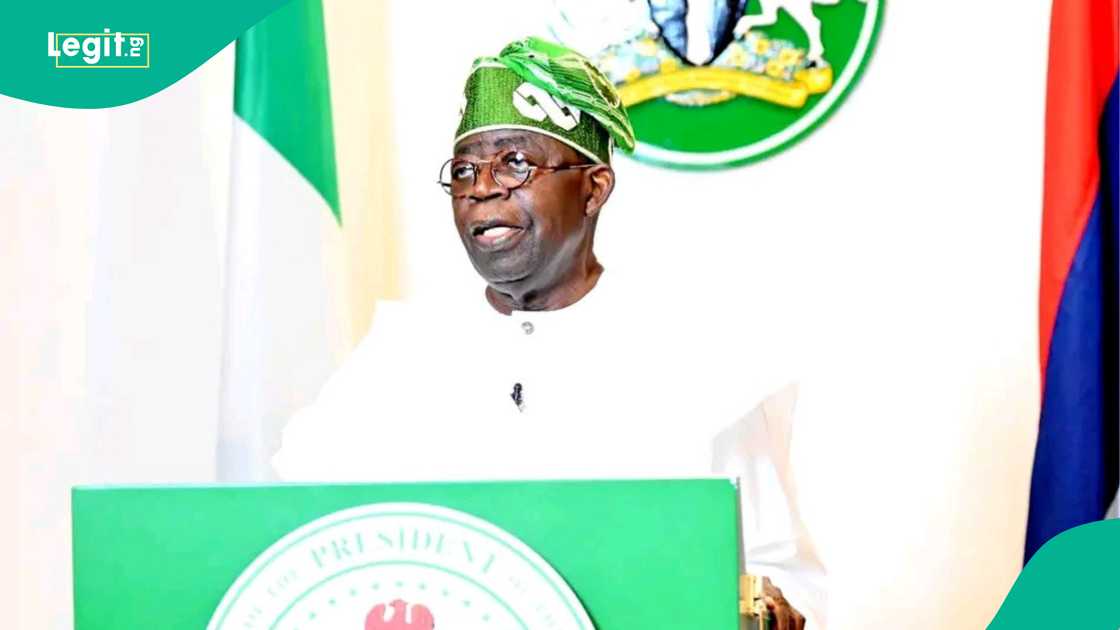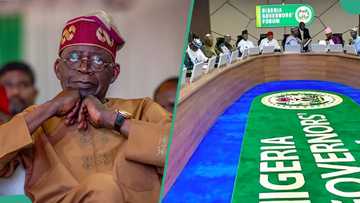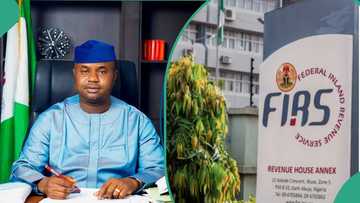"We May Not All Agree": Tinubu Defends Controversial Proposed Tax Reforms, Assures Positive Outcome
- President Tinubu says reforms, particularly in tax administration, are vital for Nigeria’s long-term economic prosperity
- Proposed tax measures aim to streamline the system, reduce the burden on vulnerable Nigerians, and boost state revenues
- Record-breaking revenues are already funding federal initiatives like student loans, infrastructure projects, and business incentives
CHECK OUT: Education is Your Right! Don’t Let Social Norms Hold You Back. Learn Online with LEGIT. Enroll Now!
President Bola Tinubu has described his administration’s sweeping reforms as critical to achieving long-term economic prosperity and shared wealth for all Nigerians.
In a statement delivered by Mohammed Idris, Minister of Information and National Orientation, at the 2024 Nigerian Media Merit Awards in Lagos, the president outlined the strategic objectives underpinning his policies.

Source: Facebook
Tinubu acknowledges differences
Speaking at the event held at the Muson Centre, Tinubu acknowledged that while debates persist over the specifics of some reforms, such as the proposed tax measures, there is broad consensus on the need for systemic change.
“Our policies are deliberate and well thought-out,” Tinubu stated.
“We are charting a path towards Nigeria’s restoration—one that demands a holistic approach to economic diversification, human capital development, infrastructure investment, wealth creation, and inclusive growth.”
Tinubu stresses importance of bill
The president identified tax reform as a cornerstone of his government’s economic agenda. He argued that addressing inefficiencies in the current tax system is vital for unlocking the country’s potential.
“There is agreement that Nigeria’s tax administration system requires reform. While we may not align on every detail, there are significant areas of convergence,” Tinubu said.
President outlines beneficiaries of tax proceeds
The tax bills under consideration by the National Assembly aim to simplify the tax structure, reduce the burden on vulnerable citizens, and enhance the revenue share for state governments. Tinubu also noted that the reforms include incentives designed to stimulate business growth.
The president highlighted the recent record-breaking revenue distribution by the Federation Accounts Allocation Committee as evidence of the reforms’ early impact.
“These unprecedented revenues are being channelled into critical sectors of the economy,” he said.
Tinubu listed several federal initiatives funded by the new revenues, including a consumer credit scheme, a student loan programme, presidential grants and loans for businesses, and the 3 Million Technical Talent Programme (3MTT). Major infrastructure projects, including road developments and the compressed natural gas (CNG) initiative, were also highlighted as key beneficiaries.
“In the spirit of federalism, state and local governments are implementing their own policies to complement our efforts,” he added.
The Nigerian Media Merit Awards, a prestigious event celebrating excellence in journalism, served as a platform for the president to reiterate his administration’s commitment to transformative economic reforms.
Observers say the reforms mark a significant step in Nigeria’s quest for financial stability and sustainable development, though implementation remains a critical test.
Tinubu's tax reform bills divide 36 governors
Earlier, Legit.ng reported that the 36 governors under the aegis of the Nigeria Governors' Forum (NGF) had been reportedly divided over the tax reform bills President Bola Tinubu forwarded to the National Assembly in October 2024.

Read also
Tax bill: FG speaks as fears over possible misuse of VAT funds by govs grow amid north's opposition
This is because the governors' meeting on Wednesday, December 11, ended in deadlock, and none of them addressed journalists afterwards.
PAY ATTENTION: Сheck out news that is picked exactly for YOU ➡️ find the “Recommended for you” block on the home page and enjoy!
Source: Legit.ng




